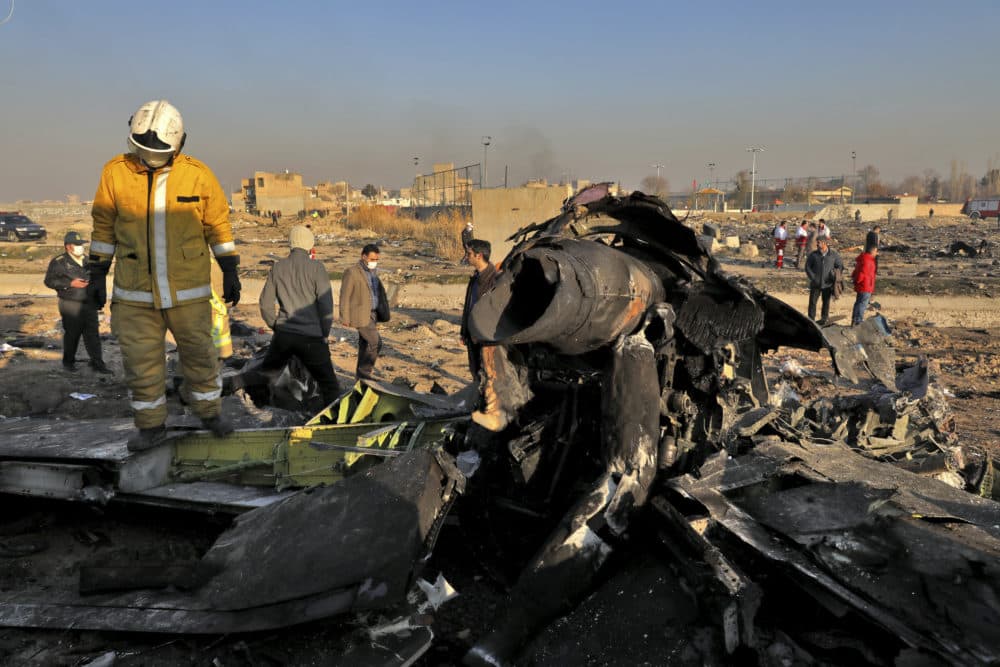Advertisement
U.S. Officials Undercut Iran's Early Claim That GE Engine Contributed To Plane Crash

Update: U.S. officials said Thursday it is "highly likely" that Iran shot down the Ukrainian airliner that crashed near Tehran Wednesday, possibly by accident. Iran initially attributed the accident to a fire in one of the plane's engines, which were co-manufactured by Boston-based GE. WBUR reported Wednesday that some aeronautics experts and investors viewed Iran's claim skeptically. The original story follows.
The Ukrainian airliner that crashed in Iran Wednesday, killing all 176 people on board, was powered by engines co-manufactured by Boston-based GE.
The cause of the crash has not been independently determined, but Iran quickly blamed engine trouble. Qassem Biniaz, a spokesman for Iran's Road and Transportation Ministry, told the state-run IRNA news agency that one of the engines caught fire.
Spokesmen for GE and its manufacturing partner, Paris-based Safran Group, insisted that "speculation regarding the cause is premature."
The GE-Safran joint venture is called CFM International and is based in Cincinnati. In a statement, CFM said, "We are deeply saddened by the loss of Ukraine International Airlines Flight 752. We extend heartfelt sympathies to the families and loved ones of those on board."
The dead include 82 Iranians, according to Ukraine's foreign minister. Ukrainian officials initially agreed with Iran's claim that a mechanical problem brought down the plane but later backtracked and declined to offer a cause.
The crash, near Tehran's main airport, followed back-and-forth military strikes between the United States and Iran — coming at a moment when Iran may be eager to pin the tragedy on American technology before investigators can determine whether workers at Imam Khomeini International Airport adhered to safety and maintenance protocols.
"I don't see how they would have known [the cause] so quickly," said John Hansman, an aeronautics professor at MIT. "They hadn't had time to look at the flight data recorder. They probably hadn't had time to investigate the physical wreckage of the engines."
The plane, a Boeing 737-800, also was made by an American company. Iran's state-run FARS news agency asserted that "Boeing 737 passenger planes are notorious for frequent technical issues," an apparent reference to deadly crashes of 737 Max planes in 2018 and 2019.
Advertisement
The plane that crashed Wednesday is a different 737 model from the one involved in the two previous accidents. The engines, too, are different models but in all cases were manufactured by GE and Safran's CFM International.
GE's stock price closed down about 1% Wednesday. The crash is unlikely to significantly harm the Boston conglomerate, said Josh Aguilar, a stock analyst who tracks GE for the research firm Morningstar. He noted the type of engine on the Ukrainian airliner, a CFM56, has a long record of reliability.
"Is the flying public going to fear flying on a CFM56? My thought is no," Aguilar said.
Information from The Associated Press was used in this report.
This article was originally published on January 08, 2020.
